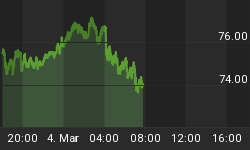An article in the Financial Times reviews the fortunes of parts makers Infineon (formerly part of Siemens), Continental and Osram, all of whom suffered last year as falling auto production depressed earnings. China, in particular, suffered a sharp fall in electric and hybrid vehicle demand when subsidies were removed last October. Global sales of internal combustion engine (ICE) vehicles were down, as IHS Markit reported 10 million fewer vehicles would be produced in 2019 than previously thought.
IHS’s data showed light vehicle production dropped in all regions in October, with China registering a 13% fall. Just 90 million cars are expected to be manufactured worldwide this year.
So, the industry was not in the best of shape coming into 2020. Even before COVID-19 struck, car parts companies were looking to reduce headcount. Now, automakers up and down the supply chain are furloughing staff at an unprecedented rate and shoring up balance sheets by drawing down on credit lines while they are still open.
A separate Financial Times report stated General Motors and Ford have both drawn $16 billion and $15.4 billion from their credit lines, while Germany’s Daimler on Thursday opened a fresh €12 billion credit line on top of its existing €11 billion facility.
Car sales across western Europe fell about two-thirds last month, according to country-by-country data published by the Financial Times, while U.S. car sales in March fell to the lowest level in 10 years. Not surprisingly, as lockdowns consolidate, both markets are expecting even steeper falls in April.
In the U.K., all major carmakers have closed and the operator of the largest factory, Nissan, placed all of the 6,000 production staff at its Sunderland plant on a furlough scheme (through which the U.K. government pays 80% of their salaries). Related: Can Disney Bounce Back From Massive Coronavirus Loss?
The financial toll on the industry will be colossal, albeit at present hard to asses.
Volkswagen’s chief executive, Herbert Diess, is reported as saying the German carmaker faced a bill of €2 billion a week in costs. The Financial Times quotes a figure of more than U.S. $100 billion in lost revenues for the European and North American car industry, suggesting lost sales in Europe are forecast to rise to 2.6 million units worth €66 billion (U.S. $73 billion). Meanwhile, North America will hit 2 million units worth about U.S. $52 billion if closures stay in place throughout April. Ian Henry owner of research group AutoAnalysis, was quoted by the FT as saying that after April, every week thereafter will cost €8 billion (U.S. $9 billion) in Europe and U.S. $7.5 billion in North America.
Not surprisingly, carmakers are working furiously to see if they can bring production back onstream in some plants — although who will buy them and through what sales channel they will be marketed remains to be seen, as most distributors have likewise closed down in the absence of buyers.
Carmakers are said to have closed due to workers’ fears of infection. Car plants are environments in which workers often operate in teams and work in proximity. It is difficult to see how such working practices can be changed to accommodate safe distancing.
During China’s lockdown, sales dropped to almost zero. Europe and North America likely have a similar fate ahead of them before seeing a recovery in the second half.
By Stuart Burns via AG Metal Miner
By Mining.com
More Top Reads From Safehaven.com:

















